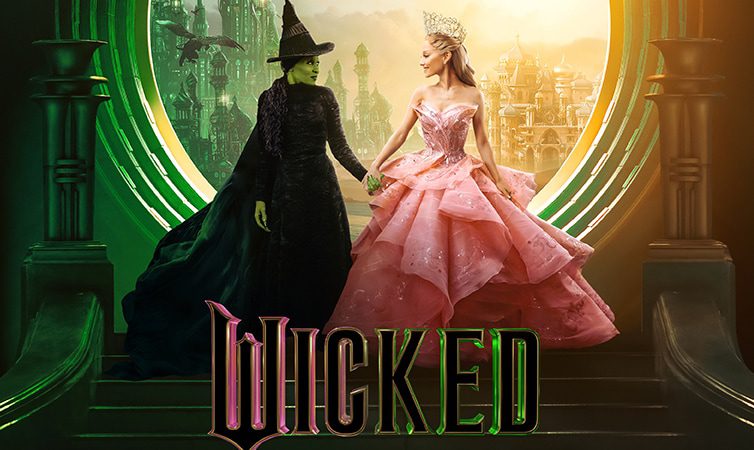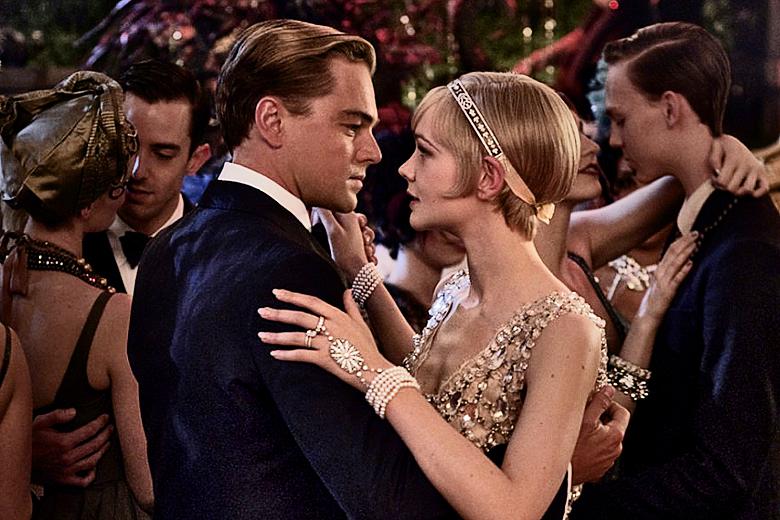Warning: spoilers ahead.
Popcorn machines have been busy lately with the arrival of the movie “Wicked”, a tale of two witches, Galinda (Ariana Grande) and Elphaba (Cynthia Erivo), who become friends despite their differing circumstances. This movie follows these characters as they battle friendship, magic, love, and manipulation.
The movie starts in medias res – in the middle of things. Viewers see Elphaba’s hat and hear Galinda’s echoing voice: “The Wicked Witch of the West is dead!” They may feel a sense of evil even before the scene starts to open. As the classic flashback from all American cinema begins in the school for magic within the land of Oz, Elphaba’s complicated relationship with her father and her protectiveness over her sister leads her to a disturbing use of her power.
Madame Morrible, the professor of sorcery, is astonished by her powers and takes the blame for Elphaba’s powers. Morrible takes Elphaba aside and offers her a special place in Morrible’s exclusive seminar, and this gesture raises one of the many questions of this movie: Is magic a talent? Often, when a character in a movie has a special power, it is never classified as a “talent”. It is something that a character has to learn to live with, whether good or bad. In “Wicked”, magic is the same as talent, a gift that someone is either born with or not.
This movie, is truly incredible, but a little too long, clocking in at 2 hours and forty minutes. Not only is it the big numbers that make it special, but it is the whimsical sound effects, the funny endings to sentences (such as “confusifying”), and the sense of innocence that is portrayed throughout the movie. It shows that Elphaba is only a girl trying to find her way, and that the ones who she looks up to are the ones who betray her in the end. Glinda wants Elphaba to be happy, but she also wants to stray from conflict. What Glinda does not know is that the conflict must allow the hero’s journey to happen, and it is what will shape Elphaba at the end.
Elphaba’s first realization that her gift may do good results in a song, one that sends chills down the spine with its resonance and mightiness. The voice of Cynthia Erivo, who sings Elphaba, is truly amazing, effortless but rich and soulful – able to transform her character.
One of the most riveting scenes of this movie is when Elphaba begins dancing to rebel against the laughter the rest of the students are tormenting her with. The movements are uncanny, slow, and painful – a representation of how Elphaba has been feeling for years. Galinda feels responsible for this, as she gave Elphaba a hat to wear to the dance, knowing that she would be made fun of. This guilt overwhelms her, and she joins Elphaba in her dance, beginning their friendship. Some viewers may have thought this scene was too drawn out, impossible to look at and impossible to look away from at the same time.
After this scene, Galinda then takes Elphaba “under her wing” and tries to convert her to her popular ways. Many children may look up to Galinda, but it is important to remember that at the heart of everything, Galinda really is just a popular girl who tried to bond with an outsider, Elphaba (or “Elphie”, a tender nickname that Galinda calls her). This movie especially makes Galinda come across as shallow, what with her hair-tossing, eyelash-batting, blonde-haired self. Galinda sings, I’ll show you what shoes to wear, how to fix your hair – everything that really counts to be popular! It is a sad but true testament about what it really means to “fit in”.
Elphaba’s song “I’m Not That Girl” has struck the hearts of many because of how it truly encapsulates the feeling of unrequited love. Elphaba tells herself that nothing could ever happen between her and the man she has feelings for because she is not the girl with the golden curls, the girl who could win over a prince’s heart with the bat of an eye. She feels butterflies inside of her stomach, blood rushing to her cheeks, but she believes that there is no way a girl like her could ever have the chance at love. This is something that every girl goes through, whether they are green or not. In Elphaba’s situation, her feeling of love is so unexpected that she feels guilty for even having it.
When Elphaba and Galinda arrive in Oz and take in its wonderful sights, it is stunningly clear to viewers that Broadway cannot compete with this set. While it is certainly entertaining to watch, sometimes one may feel that our world has a constant need to always be making the better version of something.
In the final, show-stopping number “Defying Gravity”, Elphaba soars above them and belts. In the midst of something horrible, it is so grand and inspiring.














